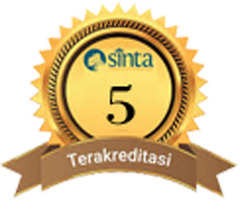PERKEMBANGAN KURIKULUM DI INDONESIA DARI KLASIK KE MODERN
DOI:
https://doi.org/10.22373/fitrah.v2i2.784Keywords:
Curriculum Development, Classical and ModernAbstract
The concept of the curriculum continues to develop and change from year to year in accordance with the development and needs of society. In Indonesia there have been several curriculum changes since 1947 to 2021. For this reason, it is necessary to study changes. This study uses the literature method by making the source of information from various literatures. Then categorized, analyzed and conclusions drawn. There are several findings from this study, namely curriculum development in Indonesia has been carried out since 1947, which was followed by changes or improvements in the following years, namely: 1952, 1964, 1968, 1975, 1984, 1994, 2004, and 2006. on purpose and adopts an integrative approach. The 1984 and 1994 curricula were oriented towards instructional and material goals with an active student learning approach. The 2004 curriculum is called the Competency-Based Curriculum which focuses on the ability according to predetermined standards. KTSP is given full authority to the school to compile its education plan by referring to the standards that have been set. Finally, the 2013 Curriculum which is oriented towards the development of cognitive, affective and psychomotor competencies.
Downloads
Published
How to Cite
Issue
Section
License
Authors who publish in this journal agree to the following terms:
- Authors retain copyright and grant the journal right of first publication with the work simultaneously licensed Attribution-NonCommercial-ShareAlike 4.0 International (CC BY-NC-SA 4.0) that allows others to share the work with an acknowledgment of the work's authorship and initial publication in this journal.
- Authors can enter into separate, additional contractual arrangements for the non-exclusive distribution of the journal's published version of the work (e.g., post it to an institutional repository or publish it in a book), with an acknowledgment of its initial publication in this journal.
- Authors are permitted and encouraged to post their work online (e.g., in institutional repositories or on their website) before and during the submission process, as it can lead to productive exchanges and earlier and greater citation of published work. (See The Effect of Open Acces)









